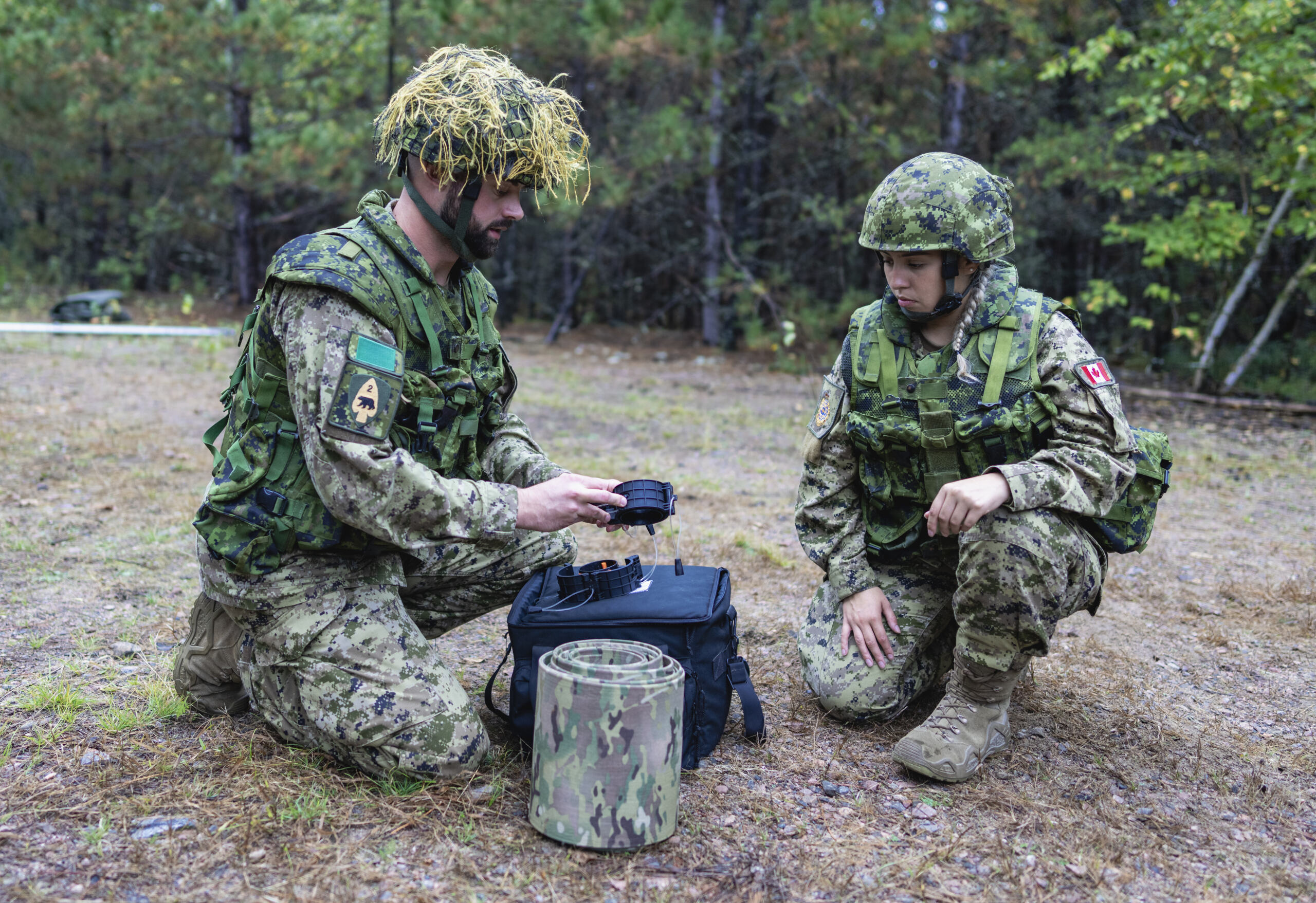
DISCOVER
THE HIGH STAKES WORLD OF A SIGNAL OPERATOR

THE HIGH STAKES WORLD OF A SIGNAL OPERATOR
FOR A LOOK INSIDE THE SKILL, EXPERTISE AND DEDICATION BEHIND THE OCCUPATION.


CORPORAL TYLER BRUSH AND PRIVATE ALEXANDRA STOSKI AS THEY WALK YOU THROUGH A DAY IN THE LIFE.
As a member of the military, Signal Operators provide reliable wired and wireless communications and information systems using leading edge voice and data systems. They are a part of a larger team that provides Army units and the Canadian Armed Forces (CAF) with communications and information services throughout Canada and around the world.
Signal Operators expertly install, remove, troubleshoot, and operate leading edge communications and information systems technology such as:
Signal Operators experience the unique adventures and challenges that come with working outdoors, in military vehicles, and temporary shelters (e.g. tents). Signal Operators work across the country on Army bases and around the world wherever the CAF has a footprint.
If you chose a career in the Regular Force, upon completion of all required training, you will be assigned to your first base. While there is some flexibility with regards to postings (relocations), accommodations can’t always be made, and therefore, you can likely expect to move at some point in your career. However, if you decide to join the Primary Reserve Force, you will do so through a specific Reserve unit. Outside of training, your chosen Reserve unit will be your workplace on a part time basis, and you will not be obligated to relocate to a different base. As part of the Primary Reserve Force, you typically work one night per week and some weekends as a minimum with possibilities of full-time employment.
The first stage of training is the Basic Military Qualification course, or Basic Training, held at the Canadian Forces Leadership and Recruit School in Saint-Jean-sur-Richelieu, Quebec. This training provides the basic core skills and knowledge common to all trades. A goal of this course is to ensure that all recruits maintain the Forces physical fitness standard; as a result, the training is physically demanding.
Learn more about Basic Training here.
Signal Operators attend the Canadian Forces School of Communication and Electronics in Kingston, Ontario. Training takes approximately 19 weeks and teaches the following basic skills and knowledge:
Signal Operators may be offered the opportunity to develop specialized skills through formal courses and on-the-job training, including:
As they progress in their career, Signal Operators who demonstrate the required ability and potential may be offered advanced training. Available courses include:
No previous work experience or career related skills are required. CAF recruiters can help you decide if your personal interests and attributes match the criteria for this occupation.
The minimum required education to apply for this occupation is the completion of the provincial requirements for Grade 10 or Secondary 4 in Quebec including Gr 10 Applied Math.
Foreign education may be accepted.
This position is available for part-time employment with the Primary Reserve at certain locations across Canada. Reserve Force members usually serve part time at a military unit in their community and at military bases within the region where they live. Reservists may serve while going to school or working at a civilian job. They are paid during their training and are not required to move. They can, however, volunteer to move and can also volunteer for deployment opportunities within or outside Canada.
Reserve Signal Operators serve with the Canadian Army, providing fast, reliable, wired and wireless communications infrastructure to military units for training and operations. When employed on a part-time or term basis, they usually serve at a Canadian Army Reserve unit in their local community.
Find a Recruiting CentreReserve Force members are trained to the same level as their Regular Force counterparts. They usually begin training in their home unit to ensure they meet the required basic professional military standards. Following basic military training, arrangements will be made for occupational training. Signal Operator training takes 19 weeks and is conducted at a regional training center or the Canadian Forces School of Communications and Electronics in Kingston, Ontario. The 19 weeks of training may be divided into modules in order to facilitate attendance by those with civilian jobs or studying full time.
Reserve Force Signal Operators usually serve part-time with their home unit for scheduled evenings and weekends. They may also serve in full-time positions at some units for fixed terms, depending what type of work is needed. Most Signal Operators work in both field and garrison (office) environments, and may be required to drive military vehicles. They are paid 92.8% of Regular Force rates of pay, receive a benefits package, and contribute to a pension plan.